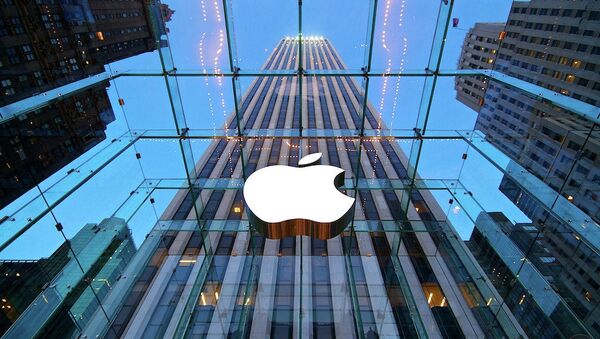Apple has been accused of tax evasion amounting to over $19 billion in an ongoing probe by the European Commission over a series of sweetheart deals the iPhone maker struck with Ireland to avoid paying taxes on revenue it earned outside of the US
Meanwhile, the US Treasury Department issued a rare warning on Wednesday saying that the executive body of the EU was becoming a “supranational tax authority”, essentially accusing it of unfairly targeting American firms.
The move has been seen by many as a last-ditch bid to dissuade Brussels from hitting Apple with a harsh punishment for underpaid taxes.
“Much of the value of Apple is in the design, the brand itself. People pay 200 euros more for an Apple than they do for an equivalent Android phone. But that brand and design are created in Cupertino, California, so the international tax system quite rightly says that [Apple should be taxed in California], not in Ireland, Europe, Germany or wherever else. That’s how the international tax law works or should work,” Tim Worstall argued.
When reminded of the current practice of breaking a company down to a number of smaller ones to lower the overall tax burden, he said that Apple’s arrangement is actually very simple.
“Say, you have Apple UK, which buys the boxes, phones from Apple Ireland. All of Apples profits outside North America end up in an Irish company, which then pays royalties for the design to a company in Bermuda, not in America. Now you might think that Bermuda is avoiding the tax, but it isn’t because if they want to pay these profits out to Apple shareholders, they must move their company back to the US, at which point those royalties pay 35 percent income tax minus the foreign taxes already paid. This is how it is supposed to work,” Warstall noted.
“The value is created in the US. Therefore, the economic activity created by that value should be taxed in the US. This is how the US tax system works and it has absolutely nothing to do with the European Commission or the European Union,” he added.
When asked why the US Treasury Department ha stepped into this case, Tim Worstall said that the main complaint is that the more taxes Apple pays in Europe, the less taxes will it be able to pay in the US. Eventual all that money has to go back to the US where it will be subject to the American corporate income tax.
“That is the way the international tax system does work, should work and will work. It is pretty much impossible to avoid or evade corporate taxation. You can delay it, like Apple does, but eventually the money has to come out of the corporate structure and be taxed,” Tim Worstall said in conclusion.
The European Commission launched a series of investigations into the companies for using making use of benign tax arrangements in Ireland, Luxembourg and the Netherlands in order to reduce its tax bills on profits made in other EU member states.
However, in a sign of tensions between the US and Brussels, the US Treasury report said that the Commission had changed its approach to the tax arrangements, classing them as "State Aid," which is banned under EU rules.
The US Treasury apparently fears that the ongoing EU probe into alleged tax evasion by American companies, including Amazon and Starbucks, could encourage many pro-European developing countries to follow suit.
Washington hates to see its industrial giants paying taxes in Europe thus taking money out of the US economy and putting it into the pockets of America’s rivals.




